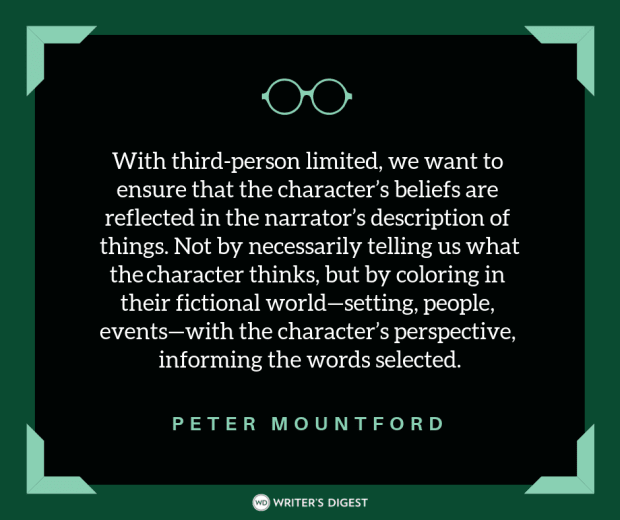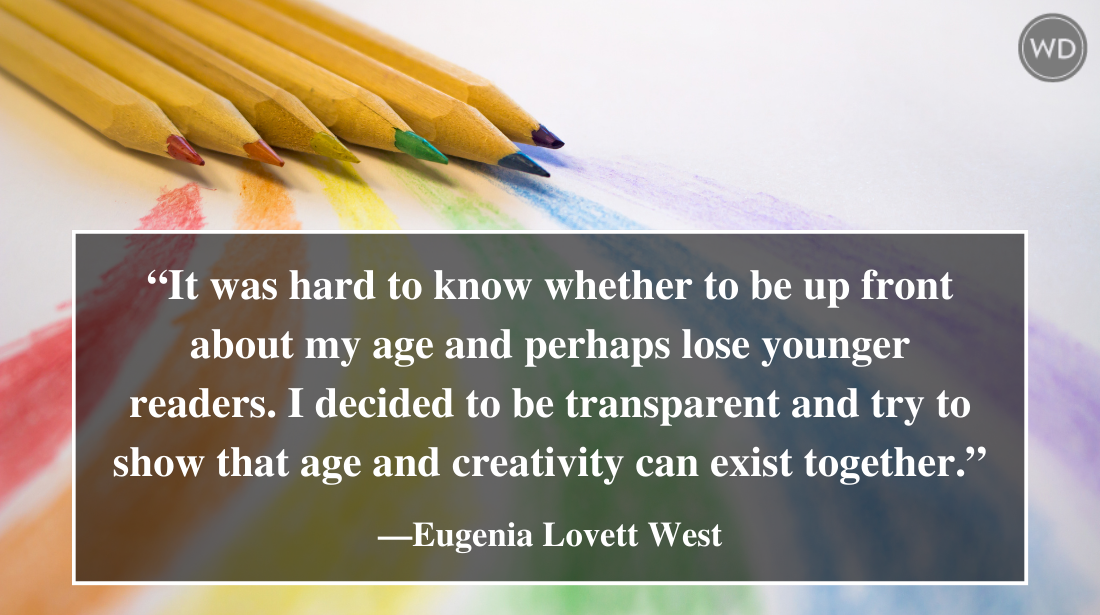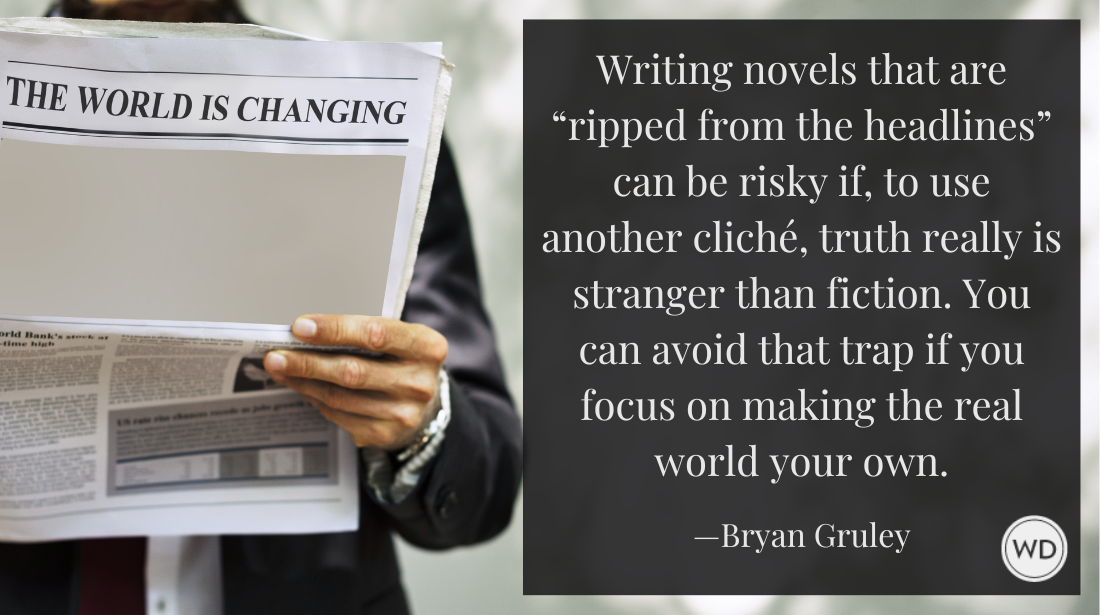Your Protagonist Must Have a Goal (Plot-Protagonist Secret #3)
Today’s guest post is the final installment of a three parter, and comes from the experienced Jim Adam, who I met at a recent Writer’s Digest Editors’ Intensive. Visit his…
Today's guest post is the final installment of a three parter, and comes from the experienced Jim Adam, who I met at a
recent Writer's Digest Editors' Intensive. Visit his homepage, or follow him on Twitter.
- Read Part I (How to Prevent Reader Boredom in Your Novel)
- Read Part II (Does Your Novel Fall Victim to the Protagonist/Goal Switcheroo?)
Warning: Harry Potter spoilers ahead
To
illustrate the importance of protagonist goal, let's look at an example
(again from the Harry Potter series) of a character who abandons the
role of protagonist while remaining the sole POV character.
At the end of Book 5, The Order of the Phoenix,
Dumbledore tells Harry the Chosen One Prophecy. According to this
prophecy, Harry is the only person able to destroy the genocidal
Voldemort. Dumbledore says that he should have told Harry the prophecy
sooner, but held back because of his desire to keep Harry safe and free
from additional burdens and worries.
We aren't done yet, but
note that warning flags have already gone up. By protecting Harry,
Dumbledore has minimized exactly those things that keep readers
immersed in a story! Safety and freedom from worry for the protagonist?
Since when was that a good idea in a work of fiction? There's a reason
why The Left Behind series chronicles the tribulations on Earth, not the big party in Heaven.
What
the end of Book 5 shows us is that Dumbledore isn't the right
Dumbledore for the Potter series. Whether his "mistake" indicates
soft-heartedness or a desire for personal glory, it doesn't matter.
Dumbledore has made life easier for Harry, and thus has undercut the
full potential of the story.
Continuing on, the very end of Book
5 shows Harry returning to his aunt and uncle's house where, for three
months, he'll be safe and free from additional burdens and worries.
[Insert the sound of screeching tires here.] Wait a minute! Dumbledore
just said this was a mistake, and now he repeats that same mistake?
Worse, Harry lets him get away with it?
What
we have here is a plot outline forcing our Hero to become a passive
little lamb. Harry goes where the plot outline tells him to go, he sits
on his hands when the plot outline requires him to, and he takes
decisive action only when the plot outline authorizes him to.
According
to Dumbledore, Harry has the ability to stop Voldemort from committing
genocide on the human race. (At this point, Voldemort is back and is
operating in the open.) Exactly what kind of protagonist would go off
and waste three months' time under such circumstances? A goalless
protagonist, that's who.
The goal of destroying Voldemort has
now become Dumbledore's, and the old codger pursues his goal
relentlessly. Unfortunately, he also pursues the goal mostly off
screen, leaving readers to watch Harry pursue various subplots:
Quidditch, romance, and questions like, "What is Draco up to?" and "Who
is the Half-Blood Prince?"
To see how insidious lack of goal (or in this case, the wrong goal) can be, let's look briefly at Book 6 of the Potter series, Half-Blood Prince.
Near the beginning of that book, when Harry learns that he's to be
captain of the Quidditch team, Hermione asks him, "What about the
Defense Association?" [DA is a student group, led by Harry, designed
to prepare students to fight against Voldemort.] Harry replies, "We'll
just disband it."
Oops. Although Voldemort is already killing
people left and right, Harry's goal is to be Quidditch team captain.
The Defense Association is a distraction from that goal, and so it must
go.
The plot outline has won and, as far as the main sequence of
events is concerned, Harry has become goalless. The price for this
isn't that some arbitrary rule of writing has been broken. The price is
that Harry becomes a heartless wretch. People are dying, and if he
applied himself, Harry might be able to stop at least some of that, but
he can't be distracted from his extra-curricular activities even for
such a lofty goal. This is the Hero of seven books?
A goalless
central character can easily lead to a mushy story, one lacking in
conflict and clear direction. (Imagine a goalless Dorothy wandering
about Oz, without even the Wicked Witch chasing after her.) In the
Potter series, however, the disturbance in Harry's world is both real
and impactful. Events move forward inexorably, and the books continue
to resemble stories. Only on closer inspection do we discover that
Harry is an inhuman widget.
As writers of commercial fiction, we need to make sure that:
- Our story has a protagonist.
- Our protagonist has a driving goal.
- Our protagonist has the right goal (prepare to fight Voldemort, not prepare to win the Quidditch trophy).
- Our
protagonist is the right protagonist—one who would accept wise advice
when given (follow the Yellow Brick Road), but one who doesn't just get
led around by parents, wise mentors, angels, friendly locals, etc.
The Overshadowed Protagonist
Speaking
of getting led around by the hand, the overshadowed protagonist seems
to be another common mistake we writers make. Consider our Wizard of Oz
example. Suppose that when Glinda arrives, instead of giving Dorothy
some sage advice, Glinda accompanies Dorothy to the Emerald City. The
result would be that Dorothy gets overshadowed, the dangers to her get
minimized, and—quite likely—the story gets bogged down in backstory and
exposition, as Glinda kindly fills in the poor girl on the history of
Oz, the habits of the Munchkins, the magical processes used in creating
the Tin Man, etc.
Although the real Dorothy is joined and aided
by other characters, although she remains ignorant of much of what is
going on about her, although she never becomes a witch or a Kung Fu
master, still Dorothy retains her goal and is able to pursue that goal
relentlessly. Her goal-driven behavior keeps the trip to the Emerald
City from being a travelogue, and it keeps the trip to the Wicked
Witch's castle from being an arbitrary sidetrack.
Despite
Dorothy's general ignorance, she always has enough information to
pursue her goal under her own impetus. This is the difference between a
protagonist and a widget:
If a protagonist has no clue how to pursue their goal, they might as well not have a goal.
This
is another key point that seems to trip us up as writers. For most
readers, "pursing a goal" means more than a protagonist waiting
patiently or wandering blindly, hoping for inspiration.
In the last book of the Potter series, The Deathly Hallows,
Harry is trapped in that sad state of wanting to destroy Voldemort but
not having a clue how to proceed. He moves one step at a time,
following a trail of breadcrumbs, never fully comprehending what it is
he's doing, or why. It seems an ignominious state for a Hero to be in.
However:
Ms. Rowling apparently realized that Dumbledore was too powerful to
keep around, and so killed him off. Unfortunately, she then allowed him
to manipulate events from beyond the grave, thus turning poor Harry
into a pair of granny glasses scuttling about in the woods. Ms. Rowling
got away with it, and maybe you can too, but why take the chance?
If
we give our main characters goals, make their achieving those goals as
difficult as we can, and then let them pursue their goals under their
own impetus, the result will be a more engaging story. And after all,
isn't that our goal?
Jane Friedman is a full-time entrepreneur (since 2014) and has 20 years of experience in the publishing industry. She is the co-founder of The Hot Sheet, the essential publishing industry newsletter for authors, and is the former publisher of Writer’s Digest. In addition to being a columnist with Publishers Weekly and a professor with The Great Courses, Jane maintains an award-winning blog for writers at JaneFriedman.com. Jane’s newest book is The Business of Being a Writer (University of Chicago Press, 2018).








